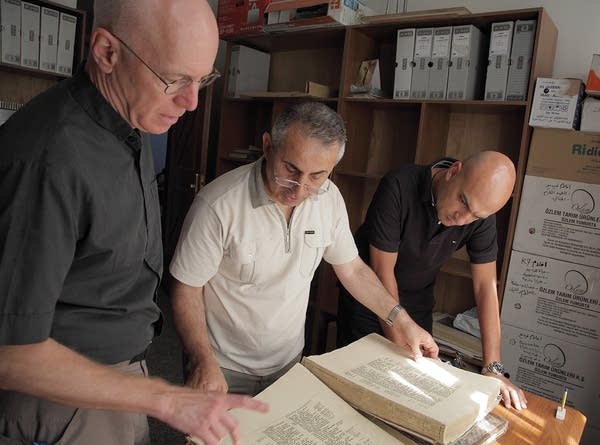At St. John's, a quest to save ancient texts

The Rev. Columba Stewart, the Rev. Nageeb Michaeel and Walid Mourad examined a printed Bible at the Dominican Priory in Qaraqosh, Iraq, home of the Centre Numerique des Manuscrits Orientaux.
Courtesy Hill Museum & Manuscript Library
Go Deeper.
Create an account or log in to save stories.
Like this?
Thanks for liking this story! We have added it to a list of your favorite stories.


